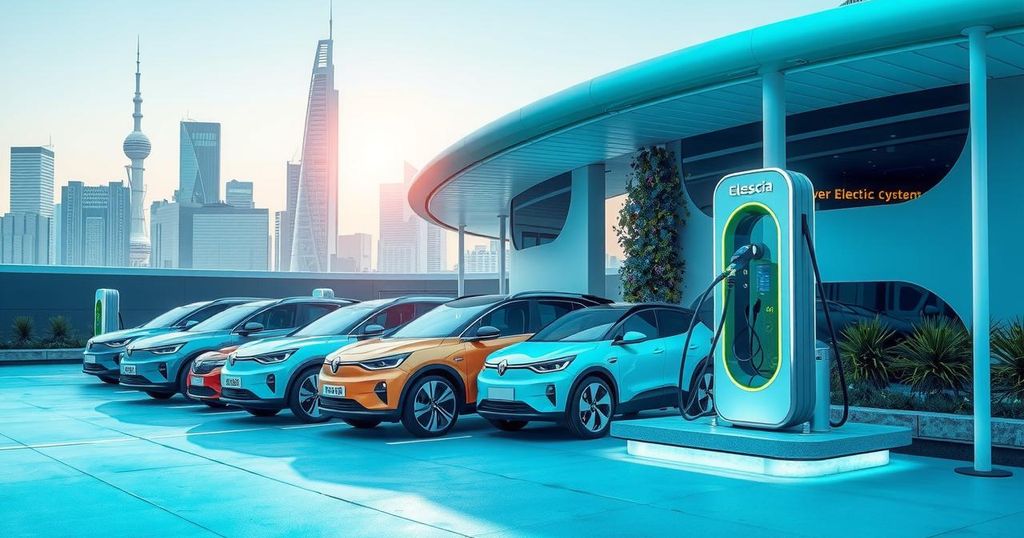Foreign Auto Brands Thrive in China’s Expanding NEV Sector

Foreign auto brands are expanding their presence in China’s new energy vehicle sector through increased investment and strategic partnerships. Companies like Audi, BMW, and Tesla are adapting to local consumer preferences and leveraging the country’s supportive government policies. The growing demand for NEVs and advancements in technology present significant opportunities for these brands to thrive.
Foreign auto brands are increasingly capitalizing on growth opportunities within China’s new energy vehicle (NEV) sector. This trend is marked by heightened investment, expanded market presence, and enhanced collaboration in projects and research. The transition from internal combustion vehicles to NEVs presents new prospects for both China and countries like Germany. Helmut Stettner, CEO of Audi FAW NEV Co., Ltd., noted, “We see that the switch to electric mobility is accelerating in China, especially in the premium market… it continues to offer significant growth potential for Audi.”
In March, BMW announced a partnership with Huawei to create a digital ecosystem for in-car technology tailored to Chinese consumers. Concurrently, Tesla’s Shanghai Megafactory, the first established outside the U.S., has successfully exported its initial batch of Megapack energy-storage batteries. Gao Yuning, deputy dean at Tsinghua University, remarked that the “continuously improving business environment and complete, efficient industrial and supply chains” are crucial factors driving foreign investments in this sector.
By 2024, China’s NEV production and sales exceeded 12 million units, reinforcing its dominance in the global market. The country has developed a robust industrial chain, contributing 70 percent of the world’s battery materials and 60 percent of power batteries. Fortunately, government initiatives such as purchase subsidies and extensive charging infrastructure have fostered a favorable environment for NEV growth.
Recent statistics from the Ministry of Commerce reveal that over 60 percent of vehicles acquired through the 2024 automobile replacement subsidy were NEVs, with foreign brands comprising over 35 percent of the purchases. Chinese consumers’ open-mindedness towards innovation and intelligent technology has led to new business opportunities for foreign automakers. They are increasingly prioritizing smart features rather than just cruising range and cost.
As a strategy, many foreign auto manufacturers recognize the necessity of developing models tailored specifically for the Chinese market. For example, Volkswagen Group has entered a strategic partnership with First Automobile Works (FAW) to introduce 11 new models starting in 2026. Ralf Brandstaetter, chairman and CEO of Volkswagen Group China, stated, “Our enduring partnership with FAW is a strong pillar of our success in China.”
Ultimately, the continuous advancement of the Chinese economy and its commitment to high-level opening-up are significant sources of confidence for foreign investors aiming to strengthen their presence in the country. Gao Yuning expressed that these conditions serve as vital motivations for foreign companies to engage further in the Chinese automotive landscape.
In summary, foreign automobile brands are recognizing and seizing the burgeoning opportunities in China’s new energy vehicle market. With strategic partnerships, tailored model developments, and a conducive business environment, these companies are poised for substantial growth. The evolving consumer preferences underscore the necessity for innovation and the integration of smart technologies in automotive offerings. Therefore, the combination of government support, market dynamics, and consumer trends continues to encourage foreign investment in China’s NEV sector.
Original Source: www.shine.cn





